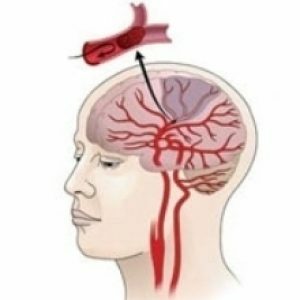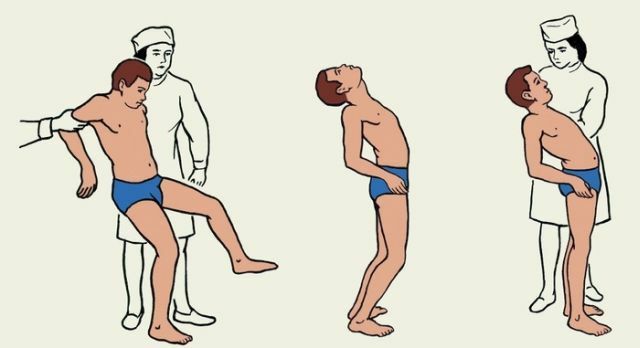Alcoholic polyneuropathy: what is it, symptoms, treatment
Content
- What is alcoholic polyneuropathy?
- Signs and symptoms
- Impact of alcoholic neuropathy
- Decreased sensitivity
- Pain and hypersensitivity
- Muscle weakness
- Autonomic neuropathy
- Causes of alcoholic neuropathy
- Diagnostics of the alcoholic polyneuropathy
- Treatment of alcoholic neuropathy
- To summarize
What is alcoholic polyneuropathy?
Alcoholic polyneuropathy (neuropathy, neuropathy) is one of the most common and least recognized consequences of heavy alcohol use. If you have had a long history of alcohol use, lingering alcoholism, you may experience pain, tingling, weakness, or loss of balance as a result of alcoholic neuropathy.
Signs and symptoms
The signs and symptoms of alcoholic polyneuropathy can progress gradually and are usually subtle at first. Often times, a person who drinks a lot may not be aware that the symptoms are related to alcohol or neuropathy.
Symptoms include any combination of the following:
- decreased sensation of legs, toes, feet, hands, or fingers;
- pain, tingling, or other unusual sensations in your leg, toes, foot, hand, or fingers;
- weakness in the legs or arms;
- lack of coordination of the legs or arms;
- loss of balance / unsteadiness when walking;
- bruises, cuts, sores, or skin infections on your feet, toes, or fingers;
- reducing pain from injuries, especially on the legs or arms;
- dizziness, especially when standing with your eyes closed;
- It is difficult to walk in a straight line, even if you have not drunk alcohol;
- constipation or diarrhea;
- urinary incontinence;
- sexual dysfunction (disorder of sex drive, sexual arousal).
Impact of alcoholic neuropathy
Alcoholic polyneuropathy (neuropathy) is a nervous disorder caused by excessive alcohol consumption for a long period of time. The consequences of alcoholic neuropathy are caused by nerve damage and are divided in four main categories; decreased sensitivity, pain / hypersensitivity, muscle weakness and autonomic disorders.
Decreased sensitivity

Alcoholic polyneuropathy damages sensory nerves, resulting in decreased sensitivity in the hands and feet. This may not seem like a terrible problem, but the weakening of sensations actually leads to very serious consequences.
- Frequent bumps and scratches. The consequences of decreased sensitivity include a decrease in the ability to feel pain, which usually occurs as a result of daily minor injuries. You may not feel the discomfort that you usually experience when your toes or hands collide with something, which greatly increases the likelihood of such discomfort. You may not notice painful sensations, for example, when wearing shoes that are too tight or if your hand or fingers accidentally hit the wall.
- Infections and bleeding: due to the lack of a sense of normal pain and discomfort, you are unlikely to protect the resulting wounds and scratches, which can lead to an even greater problem, up to sepsis. Eventually, wounds can bleed and become infected.
- Decreased sensory skills. Another consequence of decreased sensitivity is the inability to properly balance and coordinate fine motor skills such as walking and finger movements. One relies on the sensation of the feet to walk easily without looking at the ground. With decreased sensitivity, activities that are usually done without looking, such as walking, writing, and typing, can be disrupted. Often, progressive alcoholic neuropathy can throw a person off balance, especially when they close their eyes, for example, in the shower, which can lead to dangerous falls and bruises.
Read also:Sciatic nerve inflammation, causes, symptoms and home treatment
Pain and hypersensitivity

Painful and unpleasant sensations are other notable effects of alcoholic polyneuropathy. Alcoholic neuropathy can lead to increased sensitivity to touch and / or pain at rest. A light touch can feel exaggerated and painful, especially in the fingers and toes.
Constant pain in the arms or legs is one of the most unpleasant aspects of alcoholic neuropathy. The pain can be manifested by a burning sensation, throbbing, or sharp tingling with a needle. As the condition progresses, the pain can change in intensity, sometimes diminishing over several months and then intensifying again.
Muscle weakness
Severe alcoholic neuropathy can cause motor weakness due to nerve damage. Our muscles must receive messages from nearby nerves in order to function. When these messages are interrupted due to damaged nerves, the muscles cannot function normally. Most often, this condition manifests itself in the weakness of the arms and legs.
Autonomic neuropathy
Autonomic nerves control the functions of organs in the body such as the bladder, stomach, and intestines. Alcoholic polyneuropathy can weaken autonomic nerves, causing bowel, bladder, and sexual dysfunction.
Causes of alcoholic neuropathy
In general, alcoholic neuropathy develops over the years, so a long history of alcohol use is a typical cause. In some people with severe alcoholism, alcoholic polyneuropathy develops faster and more progressive, and it is not entirely clear why some people are more prone to this complication than other.
Alcoholic neuropathy is caused by nutritional deficiencies associated with long-term use alcohol, as well as toxins that accumulate in the body as a result of prolonged use alcohol.
Alcohol decreases the absorption of nutrients such as protein and vitamin B12 and causes significant nutrient deficiencies that affect many areas of the body, including the nerves. In addition, alcohol alters the function of the stomach, liver and the kidneys in a way that prevents the body from properly detoxifying waste, which then builds up and hits many areas of the body, including the nervous system.
Read also:Dorsopathy: what is it, symptoms, causes, diagnosis, treatment of dorsopathy and prognosis
Nerve damage usually affects axons, which are projections that send electrical signals (impulses) from one nerve to another, as well as to myelin, which is a fatty covering that protects nerves.
Nerves do not have an elastic capacity for regeneration if severely damaged, therefore, nerve damage with alcohol neuropathy can be permanent if damage continues or has occurred over a long period time.
Diagnostics of the alcoholic polyneuropathy
A diagnosis of alcoholic neuropathy involves a combination of the patient's medical history, physical examination, and possibly blood tests or nerve examinations, such as electromyography (ENMG) and the study of nerve conduction.
- Physical examination: if the doctor believes that a person may have alcoholic polyneuropathy, a complete physical and neurological examination, a check of reflexes, muscle strength, detailed sensitivity examination (including light touch, tingling, vibration and pain in position), and coordination check will be carried out in the office doctor. Typically, reflexes and sensitivity are reduced in people with alcoholic neuropathy. In very complicated disease, weakness may also be present.
- Electromyography (ENMG) and nerve conduction studies: With these examinations, nerve function and characteristic patterns such as decreased function are examined in detail. in the arms and legs, low amplitude of nerve waves and slowing down of nervous function, suggest an alcoholic neuropathy. However, nerve studies do not determine the cause of the neuropathy, but only the extent of the nerve damage.
- Nerve biopsy: in rare cases, a nerve biopsy may be required, which may show the nature of the nerve damage consistent with alcoholic polyneuropathy.
- Other analyzes: the patient may need to have blood, urine, or cerebral or spinal fluid tests to rule out other causes of symptoms.
Diseases that can be confused with alcoholic neuropathy.
There are a number of other medical conditions that can be confused with alcoholic neuropathy. The most common ones are:
- diabetic neuropathy;
- peripheral neuropathy;
- peripheral vascular disease;
- spine diseases;
- muscle diseases;
- multiple sclerosis;
- Guillain-Barré syndrome;
- motor (motor) neuron disease, such as amyotrophic lateral sclerosis (BASS).
Read also:Dyscirculatory encephalopathy of 1, 2 and 3 degrees, what is it, symptoms and methods of treatment
Treatment of alcoholic neuropathy
There are several medical procedures, more specifically drugs, that can be used to treat the pain of alcoholic neuropathy. They include:
- Non-steroidal anti-inflammatory drugs (analgin, diclofenac, ibuprofen, ketoprofen, etc.).
- Antidepressants: Although not approved for the treatment of alcoholic polyneuropathy, they are often prescribed for pain relief.
- Anticonvulsants. As with antidepressants, these drugs are not formally indicated for the treatment of alcoholic neuropathy, but they are sometimes prescribed as pain relievers.
- Vitamin Supplements: Alcoholic neuropathy is partly to blame for nutritional deficiencies, so supplementation with vitamin B12, folate (vitamin B9), vitamin E and thiamine may be recommended.
There are no medications that can help improve sensory loss, increase muscle weakness, or aid coordination and balance problems caused by alcoholic polyneuropathy. However, some people notice an improvement in their symptoms several months after they stop drinking.
Sometimes alcohol is so harmful to the body that it may need to liver transplant. In this case, there may be some improvement in the symptoms of alcoholic neuropathy, however, neuropathy is often so developed that even after liver transplant there may be little, if any improvement will.
To summarize
Alcoholism is a complex disease. Most people who have successfully dealt with alcoholism did not do it alone.
The medical community has recognized that addiction is a diseaseand that some people are born with a tendency to be addicted to substances, including alcohol. Thus, it is usually necessary to get medical help to cure any addiction, including alcoholism.
Some of the symptoms of alcoholic neuropathy may be partially reversed, but if the neuropathy becomes progressive, it may be irreversible.
Medication can help reduce some of the symptoms of alcoholic neuropathy. The most important strategy for coping with alcoholic polyneuropathy is to prevent worsening of symptoms by reducing alcohol consumption as soon as possible.



